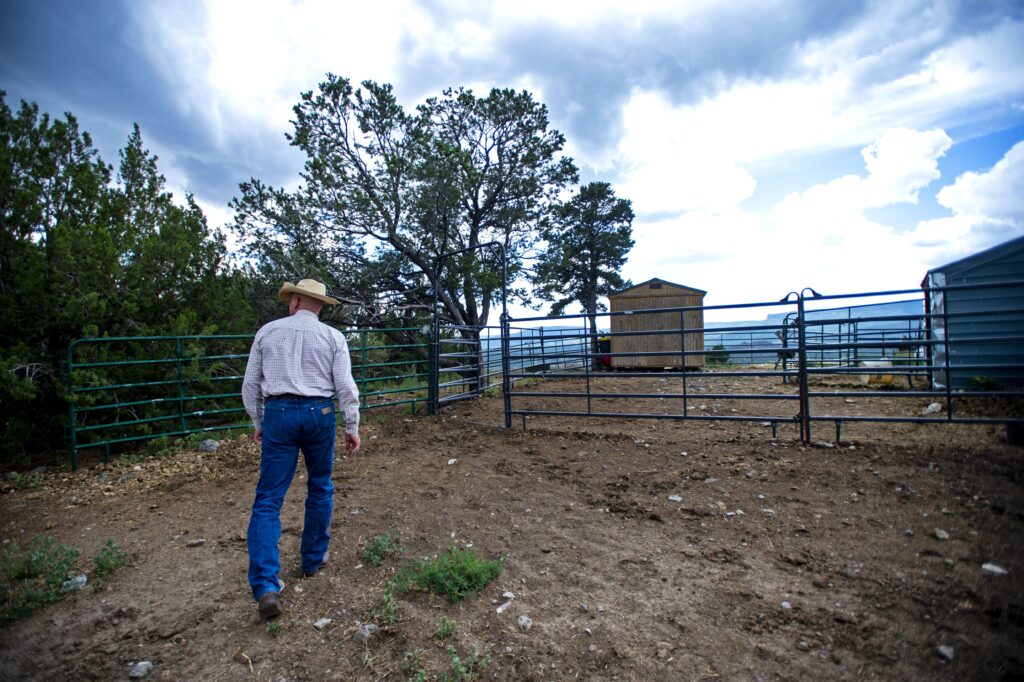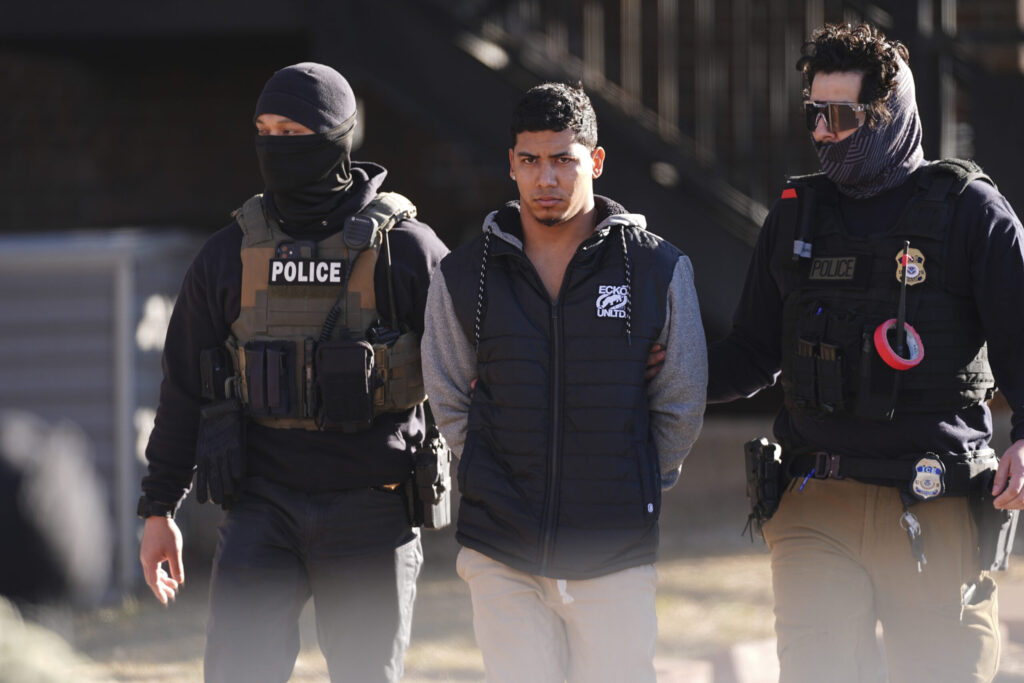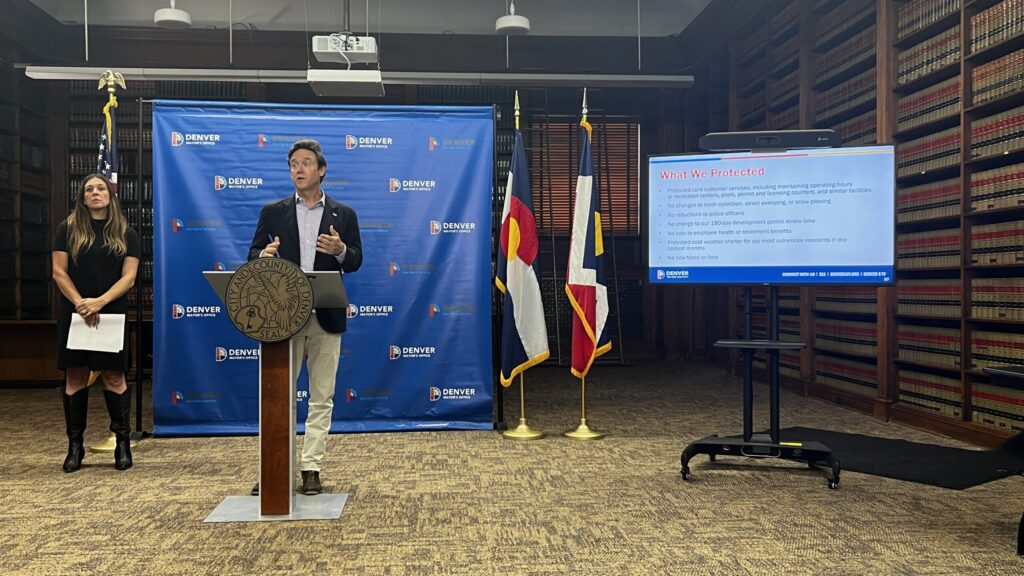Williams, Cooke: a partnership for success

They couldn’t be more different.
She’s a Denver Democrat. He’s a Greeley Republican.
She’s a businesswoman. He’s a former sheriff.
She’s a veteran lawmaker. He’s in his first term.
But together, Sen. John Cooke, R-Greeley and Rep. Angela Williams, D-Denver, forged a partnership that will change law enforcement in Colorado. Of the six law enforcement reform bills that went to the governor, Cooke and Williams were co-sponsors on four.
Williams is no stranger to big bills at the state Capitol. In addition to taking the lead on the law enforcement package in the House, she also was the public face of this year’s workforce development package and, last year, the telecommunications reform package.
Williams told The Colorado Statesman that House Speaker Dickey Lee Hullinghorst, D-Boulder, asked her to take the lead on the law enforcement package. She’d already looked at the issues from hosting town hall and community meetings last year. Williams approached Senate Majority Leader Mark Scheffel, R-Parker, to seek Senate cooperation. That’s when Cooke entered the scene, newly elected to the Senate after 30 years with the Weld County sheriff’s office.

“John brings an inside perspective,” with the experience in law enforcement, and she came from the perspective of the community voice, Williams said. “It was two people with two different backgrounds that complemented a common goal.”
Cooke said he was thankful for the opportunity to be involved, “We meshed really well.”
At first, it was a little overwhelming for Cooke, a freshman legislator, to be involved in such a major initiative. Cooke sponsored more than two dozen bills in the 2015 session. “It was trial by fire,” he said.
Williams pointed out that Cooke brought a wealth of expertise to the Capitol she said the legislature hadn’t seen before. “With our backgrounds…we know what’s been happening across the country in law enforcement,” Williams said, and that’s allowed Colorado to set the trends in law enforcement reform, rather than being “behind the eight ball.”

Her incentive on working on the law enforcement package was to make sure that Colorado communities didn’t become another Ferguson, Mo., or Baltimore. She also raised a son and understands the issues of Ferguson and Baltimore. “I woke up one morning and said ‘that’s enough.’ I can’t wait for someone else to fix this.” Williams said the bills passed won’t fix all the problems, but “it’s the beginning of courageous conversation.”
While Cooke might not have had the same problems in Weld County, Williams said he listened to her community and she listened to his expertise. “We couldn’t have had a better team,” she said.
Cooke said he learned a lot about Williams’s community and their needs. It was a different kind of experience: he had grown up in Arvada, which he called a “homogenous community,” and then lived in Greeley. He initially thought the package was more about addressing problems like those in Ferguson and Baltimore, not Colorado. But after meeting with Williams and the community, he realized that “we needed to get out in front of these problems.” He also noted that law enforcement had come to them early on, realizing the culture had to change and wanting to work with both of them as the bills moved through the Legislature.
Williams and Cooke also sponsored bills in the workforce development package, including co-sponsoring the Skilled Worker Outreach Recruitment and Training bill that was passed to the governor’s desk on the final day of the session. Williams was at the forefront, as chair of the House Business Affairs, Labor and Technology Committee. She’s also a voice for small business in the Legislature. The workforce development package will help the middle class and students coming into the job market from college, she said.
Workforce development is not exactly Cooke’s specialty, but he said he sponsored two bills at the request of Senate President Bill Cadman, R-Colorado Springs. He decided to get involved, in part, so that he wouldn’t become typecast as a one-issue legislator. “I wanted to expand my horizons and learn about workforce development,” Cooke said.
So what did they learn from each other?
“Style and grace,” said Cooke. “You can disagree and still be classy.” Williams said Cooke became a trusted confidant. “He’s honest about what happens internally” and will tell it like it is, she said. Williams cited as the best example the last bill to pass the House on May 6: the police training bill, House Bill 15-1287. It went to a conference committee at 7:30 p.m. “But I had no doubt when we went to the conference committee we would work it out. We did it in 10 minutes” and it passed unanimously she noted.
Although the 2015 session is over, Williams and Cooke aren’t done collaborating. Among the bills they sponsored is one to begin data collection on police profiling, an interim committee both will serve on. Williams said they also might revisit some of the four law enforcement bills that failed, including one that would expand profiling definitions.
Another topic that might see the two in collaboration, and that was a bit of a surprise to both, is on water issues. Cooke is a member of the Senate Agriculture, Natural Resources and Energy Committee and said he learned a lot about water issues from that committee. Williams said she is taking a certification course on water issues this summer, adding that she understands the importance of water and agriculture from having grown up on a 200-acre farm. Neither was aware the other had that interest until their interview with The Statesman, but they both said they look forward to working together there as well.
“It’s great when we can have these partnerships and expand our knowledge to work together for the people of Colorado,” Williams said.
– Marianne@coloradostatesman.com












